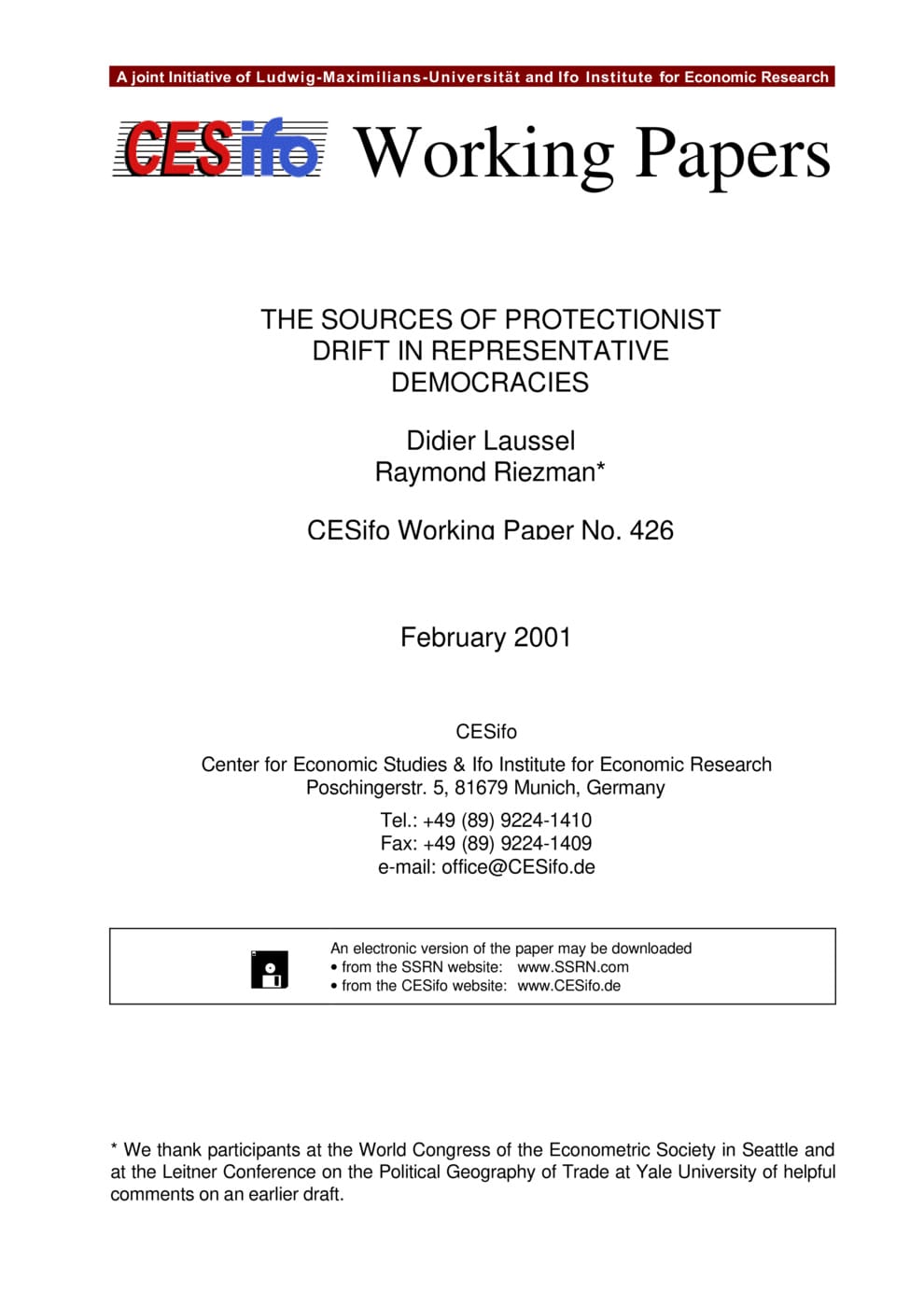The Sources of Protectionist Drift in Representative Democracies
CESifo, Munich, 2001
CESifo Working Paper No. 426

We analyze a two country-two good model of international trade in which citizens in each country differ by their specific factor endowments. The trade policy in each country is set by the politician who has been elected by the citizens in a previous stage. Due to a delegation effect citizens generally favor candidates who are more protectionist than they are. The (multiple) one candidate per country-equilibria exhibit a “protectionist drift“ owing to this delegation effect. In addition, we find an additional source of “protectionist drift“ which we call the abstention effect. Not only do candidates wish to delegate to more protectionist colleagues, but these more protectionist colleagues who can win election, prefer still more protectionist candidates than themselves. Therefore, they have an incentive to abstain, that is, not run for election. We show that because of this “abstention effect“ there exists a range of electable citizens all of whom are more protectionist than the median voter’s most preferred candidate.